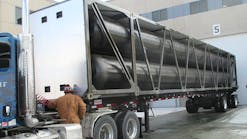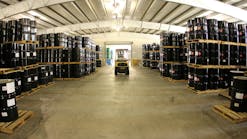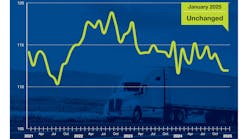Releasing oil from the Strategic Petroleum Reserves combined with a temporary suspension of filling the SPR will help stabilize petroleum markets, reduce global demand for crude oil, and ultimately lower fuel prices a top trucking executive testified before Congress.
Testifying on behalf of the American Trucking Associations before the House Select Committee on Energy Independence and Global Warming, Dave Berry, Swift Transportation vice-president, said releasing oil from the Strategic Petroleum Reserve was a key component of a comprehensive strategy to restore “rational behavior” to the petroleum markets.
“We know that the SPR does not contain enough oil to permanently alter the supply of crude oil in the marketplace,” Berry said. “But we believe strategic releases from the SPR could temporarily increase the supply of crude oil and hopefully help restore rational behavior to the petroleum markets. This type of government intervention could drive speculators out of the market and help ensure that petroleum prices are once again driven by supply and demand.
Berry also asked the Committee to review the rules governing management of the SPR. Berry said because the current rules are subject to an international agreement they limit the ability of the United States to address market irregularities with the reserves.
The dramatic increase in the price of diesel, which has coincided with a downturn in the economy and a softening demand for freight transportation, is hurting trucking companies nationwide. The trucking industry is experiencing the highest prolonged fuel prices in history.
ATA said that today it costs about $1,200 to fuel a tractor trailer. Because trucks haul nearly all consumer goods, rising fuel costs have the potential to increase the cost of everything transported by truck, including food, retail and manufactured goods.
ATA also is urging the federal government to help bring down the price of diesel fuel and to alleviate trucking companies’ hardships by doing the following:
•Stop filling and instead release oil from the Strategic Petroleum Reserve;
•Establish a national diesel fuel standard;
•Allow environmentally responsible exploration of oil-rich areas in the United States that are now off-limits;
•Allow environmentally responsible development of crude resources in oil shale and tar sands in Colorado, Utah and Wyoming;
•Work with the 50 state Attorneys General to combat any fuel price gouging that might occur;
•Continue to fund EPA’s SmartWay Transport Partnership Program, which encourages fuel-saving strategies;
•Streamline EPA’s regulatory framework for reviewing and processing applications for additional refinery operations;
•Require speed limiters set for 68 mph or lower on all new trucks;
•Set a national maximum speed limit of 65 mph;
•Suspend the collection of the 12 percent federal excise tax on motor carriers’ purchase of auxiliary power units (APUs), which cut the consumption of fuels in idling truck engines;
•Require states to grant a weight exemption for APUs; and
•Eliminate "splash and dash" - a tax benefit for imported biodiesel that is subsequently exported.








